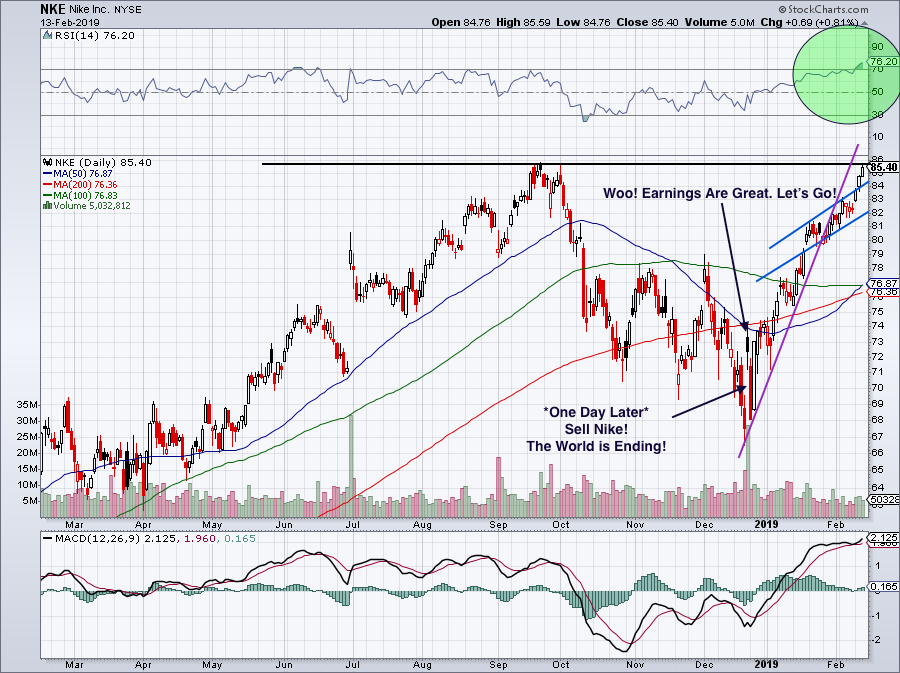Navigating The Crossroads: Apple's Future In Artificial Intelligence

Table of Contents
Apple's Current AI Landscape
Apple's current AI presence is a complex tapestry woven from several key threads. While not always the most outwardly aggressive player, Apple’s strategic approach focuses on seamless integration and user privacy.
Siri's Evolution and Limitations
Siri, Apple's AI-powered virtual assistant, has come a long way since its inception. Its strengths lie in its voice recognition capabilities and its deep integration within the Apple ecosystem. However, compared to competitors like Google Assistant and Alexa, Siri still lags in several key areas.
-
Strengths:
- Excellent voice recognition, particularly for users with American accents.
- Seamless integration with other Apple devices and services (iMessage, Calendar, etc.).
- Reliable performance within the Apple ecosystem.
-
Weaknesses:
- Limited contextual understanding; often requires precise phrasing.
- Lacks proactive features; struggles to anticipate user needs.
- Fewer third-party integrations compared to competitors.
On-Device AI and Privacy
Apple’s commitment to on-device processing is a defining characteristic of its AI strategy. This focus on privacy differentiates Apple from competitors who rely heavily on cloud-based processing.
-
Advantages:
- Enhanced data security; user data is not sent to external servers for processing.
- Faster processing for certain tasks, as data doesn't need to travel to and from the cloud.
- Increased user trust, appealing to privacy-conscious individuals.
-
Challenges:
- Limitations in processing power compared to cloud-based AI; this can impact the complexity of tasks Siri can handle.
- Increased hardware demands; on-device processing requires more powerful chips.
- Potential difficulties in developing and training complex AI models solely on-device. This often leads to the reliance on smaller, less powerful models.
AI in Apple's Hardware
AI is subtly but powerfully integrated into various Apple products, enhancing user experience across the board.
- Examples:
- iPhone: Advanced image processing capabilities in the camera, including scene detection and portrait mode, leverage computer vision in Apple products. Improved predictive text relies heavily on machine learning algorithms.
- iPad: Features like handwriting recognition and augmented reality applications benefit from advanced machine learning models.
- Apple Watch: Health tracking features such as heart rate monitoring and fall detection utilize AI to provide personalized insights and potentially life-saving alerts. This data is used to enhance Apple's AI-driven features.
Future Directions for Apple's AI
While Apple’s current AI footprint is substantial, its future direction remains shrouded in speculation, promising exciting potential advancements.
Potential Breakthroughs in Machine Learning
Apple's future success hinges on advancements in its machine learning algorithms. We can anticipate:
- Improved Natural Language Processing: Expect more nuanced and context-aware interactions with Siri, potentially including proactive assistance and more natural language understanding.
- More Sophisticated Image Recognition: Expect improvements to image analysis capabilities, with applications in areas such as improved augmented reality experiences and enhanced photo organization.
- Development of new AI-powered services: New services leveraging Apple’s growing AI expertise are likely, possibly in areas such as personalized health management or advanced home automation. This would contribute greatly to Apple's AI strategy.
Expansion into New AI Markets
Apple’s AI expertise could propel them into new and exciting markets:
- Autonomous Vehicles: While not openly confirmed, Apple's secretive "Project Titan" suggests a potential foray into self-driving technology, a highly competitive and technologically demanding AI market.
- Augmented Reality (AR): Apple’s advancements in AR, as seen with its Vision Pro headset, will heavily rely on advanced computer vision and machine learning to create immersive and realistic experiences.
- Healthcare: Apple’s established presence in health tracking through the Apple Watch opens avenues for developing AI-powered diagnostic tools and personalized health management systems.
Competition and Collaboration
Apple faces fierce competition from tech giants like Google, Amazon, and Microsoft, each with their own robust AI initiatives. However, Apple possesses unique competitive advantages:
- Strong Ecosystem: The tight integration of its hardware and software provides a fertile ground for developing and deploying AI features.
- Focus on Privacy: Apple’s privacy-centric approach resonates with consumers increasingly concerned about data security, potentially attracting users disillusioned with other platforms.
- Financial Resources: Apple’s vast financial resources allow for significant investment in AI research and development, ensuring its continued competitiveness.
Strategic partnerships, while less prevalent in Apple's history than with other tech giants, could also play a significant role in accelerating its AI progress.
Conclusion
Apple's current AI capabilities are strong but not dominant. Its future hinges on making breakthroughs in machine learning, expanding into new markets, and leveraging its unique strengths in a fiercely competitive landscape. While the specifics remain unclear, Apple's dedication to on-device processing and user privacy positions it uniquely in the market. The future of Apple's AI journey is ripe with possibility. What are your thoughts on how Apple will navigate this crucial crossroads? Share your predictions and insights in the comments below!

Featured Posts
-
 Exploring Wynne And Joannas All At Sea A Deep Dive
May 10, 2025
Exploring Wynne And Joannas All At Sea A Deep Dive
May 10, 2025 -
 Merlin And Arthur A Medieval Tale Hidden In Plain Sight On A Book Cover
May 10, 2025
Merlin And Arthur A Medieval Tale Hidden In Plain Sight On A Book Cover
May 10, 2025 -
 Palantirs Stock Price Surge Analysts Adjust Forecasts
May 10, 2025
Palantirs Stock Price Surge Analysts Adjust Forecasts
May 10, 2025 -
 Exclusive Elliott Eyes Russian Gas Pipeline Investment
May 10, 2025
Exclusive Elliott Eyes Russian Gas Pipeline Investment
May 10, 2025 -
 West Bengal Board Madhyamik Result 2025 Official Merit List
May 10, 2025
West Bengal Board Madhyamik Result 2025 Official Merit List
May 10, 2025
